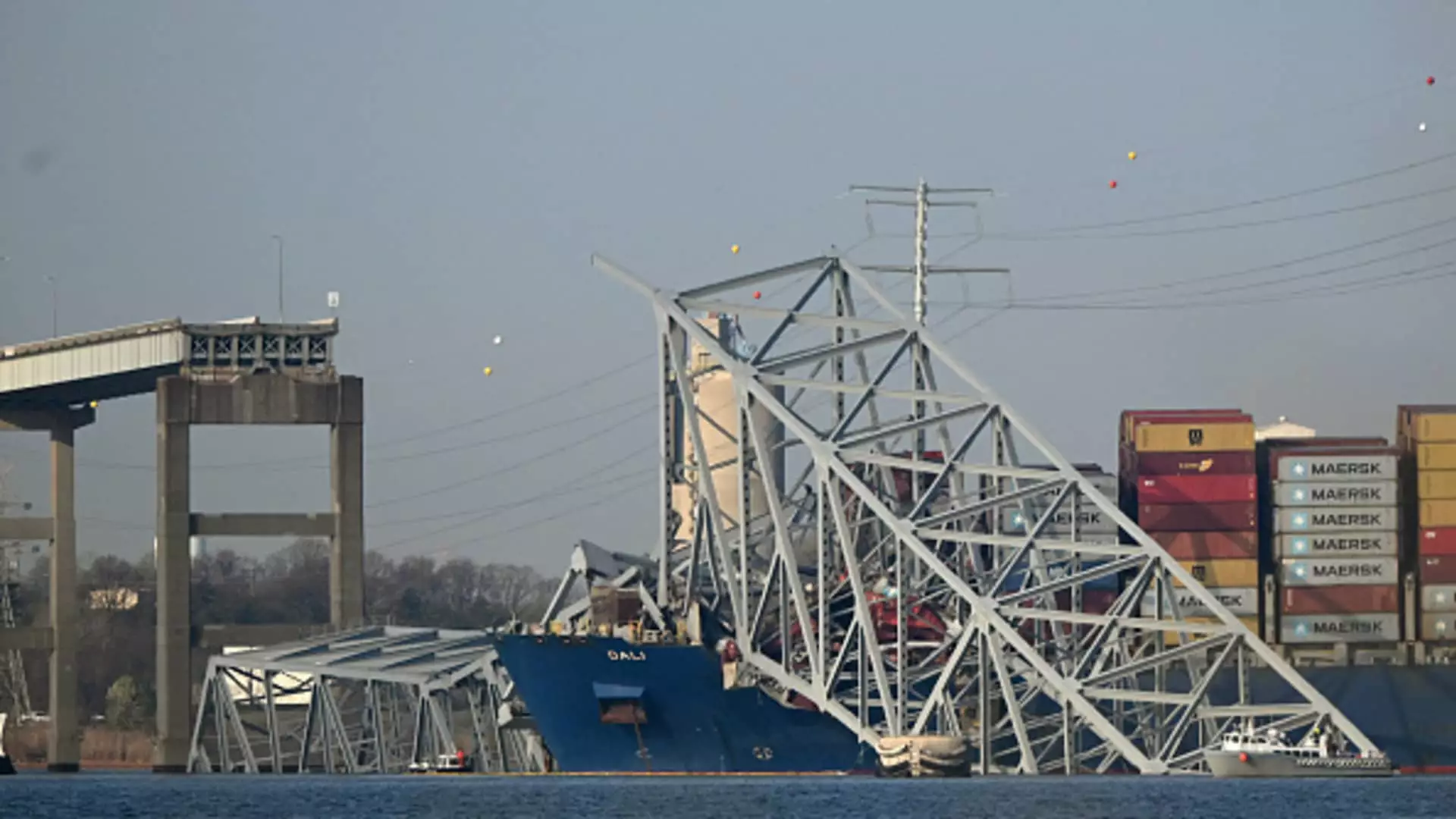The recent collapse of Baltimore’s Francis Scott Key Bridge is poised to have a far-reaching impact on the national economy, as officials emphasize the severity of the situation. According to Maryland Governor Wes Moore, this is not merely a localized disaster but rather a national economic catastrophe. The bridge served as a crucial access point for the bustling Port of Baltimore, which is considered one of the busiest and most active in the entire country. With the channel blocked by the wreckage, the repercussions are expected to be felt by industries and businesses across various states.
The bridge collapse, resulting from a collision with a large cargo ship, led to the tragic loss of two construction workers, with four others still missing and presumed dead. While efforts to remove the ship, clear debris, and reopen the channel are currently underway, the operation is proving to be complex and time-consuming. U.S. Transportation Secretary Pete Buttigieg highlighted the importance of restoring the Port of Baltimore to full functionality as swiftly as possible. However, both the salvage work and the reconstruction of the bridge are faced with uncertainties in terms of timelines.
The significance of the Port of Baltimore in facilitating trade and commerce cannot be overstated. In 2023, the port processed a record-breaking 1.1 million containers of cargo, solidifying its position as the ninth-busiest port in the nation. Moreover, it handled over 850,000 shipments of cars and light trucks, surpassing all other ports for the 13th consecutive year. Baltimore Mayor Brandon Scott emphasized the port’s critical role in not only serving the local economy but also impacting global trade networks.
Socioeconomic Impact and Relief Efforts
Over 15,000 individuals are employed directly by the Port of Baltimore, and the livelihoods of many more are intertwined with its operations. In response to the bridge collapse, the Small Business Administration pledged to provide low-interest, long-term loans of up to $2 million to support affected small businesses in the region. The federal government has allocated significant funding for debris clearance and bridge reconstruction, with plans to cover 90% of the costs. Senators Chris Van Hollen and Ben Cardin are working on legislation to address the remaining 10% of the financial burden.
President Joe Biden’s commitment to fully fund the rebuilding of the bridge using federal resources has been met with both support and resistance. While some lawmakers have voiced concerns about the government shouldering the entire cost, Secretary Buttigieg remains optimistic about bipartisan cooperation in securing funding for the bridge project. He points to the successful passage of Biden’s infrastructure package as a testament to the potential for collaboration in addressing critical infrastructure needs.
The collapse of the Francis Scott Key Bridge in Baltimore has far-reaching implications for the national economy, highlighting the interconnectedness of supply chains and trade networks. The road to recovery will be arduous, requiring a coordinated effort from federal, state, and local authorities, as well as support from lawmakers. The resilience of Baltimore and its port community will be tested, but the response to this crisis presents an opportunity to demonstrate unity and determination in overcoming adversity.

Leave a Reply